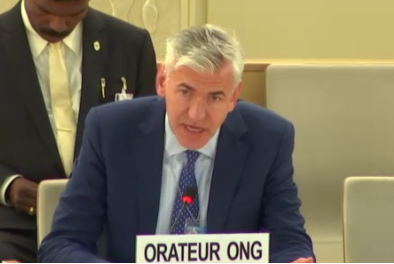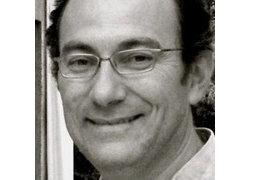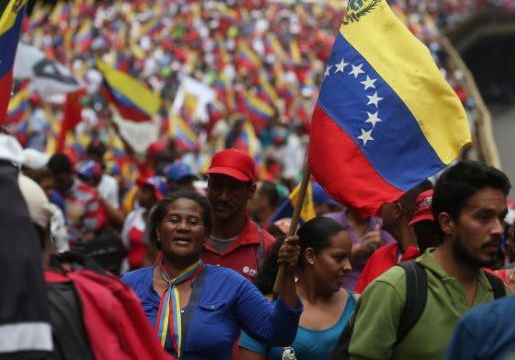
Jul 11, 2019 | Advocacy, Non-legal submissions
The ICJ today called on the Human Rights Council to seek to allow the International Commission Against Impunity in Guatemala (CICIG) to continue its essential work, and to promote similar initiatives elsewhere.
The statement, delivered during a general debate on technical cooperation, read as follows:
“The International Commission of Jurists (ICJ) welcomes the technical cooperation the United Nations has provided to the International Commission Against Impunity in Guatemala (CICIG).
For more than ten years, the CICIG has been essential to the fight against corruption and impunity in Guatemala. It has provided invaluable support to prosecutors and judges in the investigation and and trial of major crimes of corruption.
The combination of provision of technical assistance and actual participation in the proceedings as “querellante adhesivo” (“complementary prosecutor”) has been important to the CICIG’s effectiveness. For instance, the CICIG helped ensure that investigations took place into high-level officers from the Government and against people that had illegally financed their public campaigns. Several public officers have been brought to justice.
The ICJ therefore expresses its deepest concern that the Government of Guatemala has decided to allow the mandate of the CICIG to expire on the 3rd of September, despite its role remaining as essential as ever to the fight against corruption and impunity in the country.
We urge the Human Rights Council to seek to allow the work of the CICIG to continue, as well as to promote more generally the important potential of UN involvement in such mechanisms to strengthen the fight against impunity at the national level.”

Jul 8, 2019 | Comunicados de prensa, Informes, Multimedia, Noticias, Publicaciones
Las autoridades venezolanas deben tomar medidas de inmediato para restaurar las instituciones democráticas y el funcionamiento del estado de derecho, lo que incluye disolver la Asamblea Nacional Constituyente y restaurar los poderes constitucionales de la Asamblea Nacional, dijo hoy la CIJ.
Sin lugar para la deliberación, el informe más reciente de una serie sobre derechos humanos y estado de derecho en Venezuela, aborda aspectos profundamente problemáticos con respecto a la creación, composición y funcionamiento de la Asamblea Nacional Constituyente de Venezuela, la cual actualmente detenta funciones legislativas, y su devastador efecto para el Estado de Derecho en ese país.
El reporte muestra que la Asamblea Nacional Constituyente, instalada el 4 de agosto en virtud un decreto ejecutivo del Presidente Nicolás Maduro, ha desplazado la autoridad de la constitucionalmente establecida Asamblea Nacional.
“La ANC fue creada unilateralmente por el Presidente, sin refrendación popular mediante un referendo, configurando una evidente violación a la Constitución, y desde entonces ha actuado como un cuerpo sin control o respeto por el estado de derecho,” dijo Sam Zarifi, Secretario General de la ICJ.
Inicialmente creada para redactar una nueva Constitución, la Asamblea Nacional Constituyente ha sido usada para usurpar funciones legislativas y así aprobar medidas de orden administrativo, electoral y legislativo en favor de la agenda del Poder Ejecutivo, establece el reporte.
El informe documenta cómo la Asamblea Nacional Constituyente adelantó elecciones presidenciales; levantó la inmunidad parlamentaria de diputados de la Asamblea Nacional para permitir su arresto y enjuiciamiento; designó a las autoridades de más alto nivel; y aprobó leyes discriminatorias que criminalizan la libertad de expresión y asociación.
Entre otras cosas, la CIJ recomienda a las autoridades venezolanas que tomen medidas para que:
- Cese el funcionamiento de la Asamblea Nacional Constituyente y se reestablezcan los poderes constitucionales de la Asamblea Nacional.
- Se permita a la Asamblea Nacional revisar los actos adoptados por la Asamblea Nacional Constituyente, a fin de dejarlos sin efecto total o parcialmente, de manera inmediata o condicional, en aras de preservar la seguridad jurídica.
Contactos:
Sam Zarifi: Secretario General de la CIJ; t +41 79 726 44 15; e sam.zarifi(a)icj.org
Santiago Martínez Neira: abogado consultor de la CIJ; e santiago.mn(a)gmail.com
Venezuela-Sin Lugar para la deliberacion-Publications-Reports- fact findings mission reports-2019-SPA (Informe, en PDF)
Video de un evento paralelo sobre la crisis de derechos humanos en Venezuela, organizado conjuntamente con Amesty International:
https://www.facebook.com/ridhglobal/videos/1206399322898690/

Jul 8, 2019
The Venezuelan authorities must take immediate steps to recover the country’s democratic institutions and the functioning of the rule of law, including disbanding the National Constituent Assembly and allowing the National Assembly to resume its Constitutional authority, the ICJ said today in a new report and at a webcast event.
No Room for Debate, the latest in a series of reports on human rights and the rule of law in Venezuela, addresses the deeply problematic aspects concerning the creation, composition and functioning of the National Constituent Assembly (NCA) of Venezuela, presently wielding legislative power, and its devastating effect on the rule of law in the country.
The report shows how the National Constituent Assembly, installed on 4 August 2017 pursuant to an executive decree by President Nicolás Maduro, has displaced the authority of the country’s constitutionally established legislature.
“The NCA was created unilaterally by the President, without popular endorsement through a referendum, in blatant violation of the Constitution, and ever since has acted in an unchecked manner and beyond the rule of law,” said Sam Zarifi, ICJ Secretary General.
Initially convened to prepare a new Constitution, the National Constituent Assembly has been used to usurp legislative functions in order to pass electoral, administrative and legislative measures in support of the Executive Branch’s agenda, the ICJ report says.
It documents how the National Constituent Assembly called early presidential elections; rescinded legislative immunity for National Assembly deputies to enable their arrest and prosecution; appointed top-ranking executive authorities; and adopted discriminatory measures that penalize freedom of expression and association.
Among several recommendations, the ICJ urges the State authorities to:
- Rescind the National Constituent Assembly and restore the Constitutional powers of the National Assembly.
- Allow the National Assembly to review the orders issued by the National Constituent Assembly, to render them totally or partially ineffective, immediately or conditionally, in the interest of ensuring legal certainty.
Contact:
Sam Zarifi, ICJ Secretary General, t +41 79 726 44 15 ; e sam.zarifi(a)icj.org
Santiago Martínez, ICJ Consultant; santiago.mn(a)gmail.com
Venezuela-No room for debate-Publications-Reports-Fact finding mission reports-2019-ENG (full report in PDF)
Watch the video (mostly in Spanish) of a side event on the human rights crisis in Venezuela, organized jointly with Amnesty International.
https://www.facebook.com/ridhglobal/videos/1206399322898690/

Jul 8, 2019 | Artículos, Noticias
La CIJ anuncia que llevará a cabo una misión para observar el proceso de elección de magistrados de Corte Suprema de Justicia y Salas de Apelaciones. Para el efecto, ya se encuentra en el país, el Comisionado de nacionalidad chilena Alejandro Salinas (foto), quien permanecerá en el país, hasta el viernes 12 de julio.
La misión tendrá reuniones con el Procurador de Derechos Humanos, Diputados del Frente Parlamentario por la Transparencia y contra la Corrupción y miembros del Sector Académico, Gremio de Abogados y representantes del Sector de Justicia, que participarán en las próximas comisiones de postulación.
El objetivo de esta misión es promover la mayor transparencia del proceso de elección de las y los magistrados de la Corte Suprema de Justicia y Salas de Apelaciones, para que dichos procesos de elección logren que los próximos magistrados/as sean electos por méritos y no por compadrazgos políticos y así, que exista la mayor independencia posible en el Poder Judicial y por lo tanto, mayor respeto de los derechos humanos.
Se espera que la misión haga públicas sus conclusiones el viernes 12 de julio, después de implementar la agenda respectiva.
Además, el 11 de julio, llevará a cabo un foro público, para estimular el debate social sobre la necesidad de un Poder Judicial independiente, que cuente con magistrados imparciales, idóneos y honestos.
Ramón Cadena, Director de la CIJ para Centroamérica expresó: “En las elecciones del año 2009, las acciones de la Comisión Internacional contra la Impunidad en Guatemala (CICIG), conjuntamente con las de la sociedad guatemalteca, permitieron que el proceso en sí mismo, se constituyera en un mecanismo de depuración, ya que el Congreso de la República tuvo que dar marcha atrás y no nombrar como Magistrados de Corte Suprema de Justicia a tres personas. En 2014, la CICIG conjuntamente con el Ministerio Público, llevaron a juicio después de las elecciones, a tres magistrados de Corte Suprema de Justicia, recién electos, que tuvieron que renunciar al cargo. Las elecciones de este año, estarán marcadas por la ausencia de la CICIG, lo cual significará enfrentar mayores desafíos para lograr avances en la lucha contra la impunidad, durante todo el proceso de elección.”

Jul 5, 2019 | Advocacy, Non-legal submissions
The ICJ today highlighted the role of the “National Constituent Assembly” in Venezuela in contributing to the destruction of the rule of law in the country, in an oral statement to the UN Human Rights Council.
The statement, delivered during an Enhanced Interactive Dialogue on the situation for human rights in Venezuela, in the presence of the UN High Commissioner for Human Rights, read as follows:
“Madame High Commissioner,
Next week the International Commission of Jurists (ICJ) will publish a detailed report on the “National Constituent Assembly” of Venezuela (NCA) mentioned briefly in your report (A/HRC/41/18, para 34).
The NCA was created unilaterally by the President, without popular endorsement through a referendum, in blatant violation of the Constitution.
As your report notes (footnote 26), the NCA has purported to act as a de facto Parliament. In this it has unlawfully usurped legislative powers clearly assigned by the Constitution to the already-existing National Assembly. Among other things, it has called early presidential elections and removed the Attorney General. It was the NCA that actually rescinded legislative immunity for National Assembly representatives, enabling their arrest and prosecution, after the Supreme Court purported to authorize it to do so (para 37).
Furthermore, as ICJ has extensively documented and your report recognizes, the Venezuelan judiciary has been deprived of its independence and impartiality (paras 56 and 76).[1] Lack of access to justice for widespread gross human rights violations by security forces is pervasive (paras 39 to 59, 77 to 79).
In this context, the NCA essentially operates as an unchecked instrument of the President, unilaterally modifying the legal system, declaring itself above the Constitution, and contributing to the destruction of the rule of law.
We therefore particularly welcome the recommendations in your report to restore the independence of the justice system and impartiality of the Attorney General (81(j)), to bring perpetrators of gross human rights violations to justice (81(c)), and for a renewed focus by the Council on accountability (para 83).
The ICJ further urges that the NCA must be abolished and the National Assembly allowed to operate normally with its full powers, if the rule of law is to have any chance of being restored in Venezuela.
We support calls for the Human Rights Council to establish a Commission of Inquiry or similar mechanism.
Thank you.”
[1] See, among other ICJ reports: Venezuela: The Sunset of the Rule of Law (2015); The Supreme Court of Justice of Venezuela: an Instrument of the Executive Branch (2017); and Achieving Justice for Gross Human Rights Violations in Venezuela (2017).









